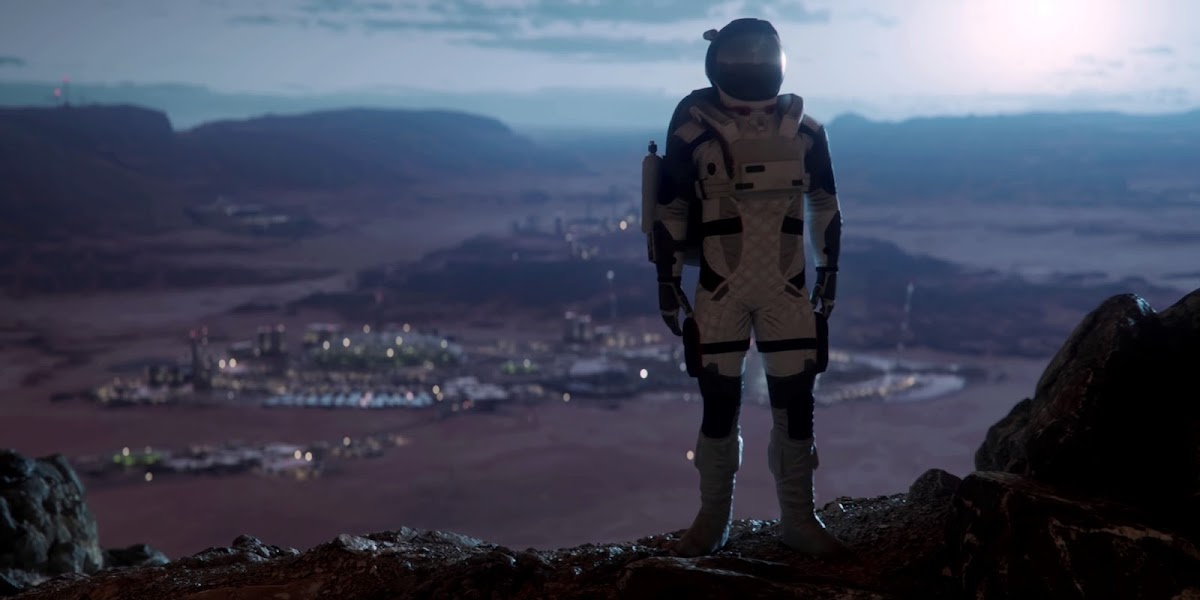Here you can watch the shortfilm and see some Mars-related images from it:
Astronaut in front of Mars colony:
Space station orbiting Mars:
 Swedish digital artist Erik Wernquist, the author of the stunning shortfilm "Wanderers" which depicts a vision of humanity's expansion into the Solar System, has created another inspirational shortfilm "Go Incredibly Fast" "to identify a few propulsion approaches we might utilize to send humans to the worlds in our Solar System beyond Mars and reach out across the vast distances between stars."
Swedish digital artist Erik Wernquist, the author of the stunning shortfilm "Wanderers" which depicts a vision of humanity's expansion into the Solar System, has created another inspirational shortfilm "Go Incredibly Fast" "to identify a few propulsion approaches we might utilize to send humans to the worlds in our Solar System beyond Mars and reach out across the vast distances between stars."
.jpg)